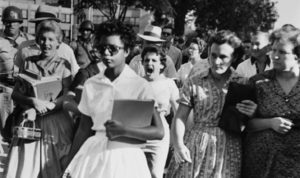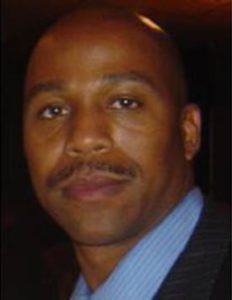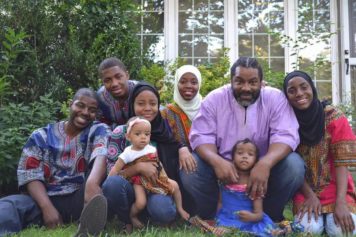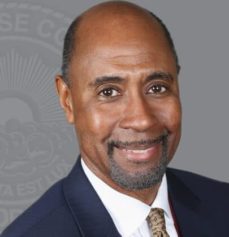
06 Sep 1957, Little Rock, Arkansas, USA — Elizabeth Eckford ignores the hostile screams and stares of fellow students on her first day of school. She was one of the nine negro students whose integration into Little Rock’s Central High School was ordered by a Federal Court following legal action by NAACP. — Image by © Bettmann/CORBIS
September 4th marks the anniversary of the Little Rock 9 and the desegregation of Central High School in Arkansas. On that day in 1957, Governor Orval Faubus deployed the Arkansas National Guard to support segregationists who blocked nine African-American students from integrating the school. Since that time–six decades since the Brown v. Board of Education decision that prohibited legal segregation, and the order to end the segregation of the public schools “with all deliberate speed”—schools are as segregated as ever. A U.S. Government Accountability Office (GAO) study found that public schools are increasingly segregated by race and class, as the percentage of high-poverty and mostly Black and Latino schools doubled.
More importantly, Black children find themselves in an educational crisis. They are funneled into a school-to-prison pipeline, and face hostility, criminalization and punishment in an environment that should be welcoming to young minds, but is not conducive to their learning or healthy development.
What went wrong? If the goal was seeking desegregated schools as a means to an end, or as a tactic to bring about higher quality education for Black children, it is clear the Black community is not being served by what is developing in the current landscape.
“Two of the scholars who I most admire, W.E.B. Du Bois and Derrick Bell, both critiqued the focus on school desegregation over quality education for Black children. Their critiques were poignant, informative, and legitimate. Nevertheless, both of them also understood the importance of multiple perspectives and knew that there were no simple answers,” Vinay Harpalani, Associate Professor of Law at Savannah Law School, told Atlanta Black Star. “I knew Professor Bell fairly well, as I worked with him during and after law school. In his later years, his favorite saying was: ‘Don’t let the perfect be the enemy of the good’ — and I think that is applicable here as well” added Harpalani, who is a legal scholar with expertise in constitutional law and civil rights.
Others have a different perspective. “We lost pretty much everything including our mind. We had a safety net, a generational cushion– another being the church–and segregation took away the safety net,” Dr. Nana Lawson Bush, V, Professor of Educational Leadership and Administration at California State University, Los Angeles, told Atlanta Black Star.

Dr. Nana Lawson Bush, V, Professor of Educational Leadership and Administration at California State University, Los Angeles
“Looking back, it is hard to understand why they chose this route. Imagine what they saw. Freedom must’ve looked like something different from what they saw,” Dr. Bush said of Black people during segregation who envisioned integration, adding that most voices in the Black community did not have a space to be heard on the issue. “I don’t think they could foresee what would happen to Black schools,” he suggested. To be sure, segregation was an immoral and unequal system. “Black schools got very little and white schools got a lot. So that was part of the argument, and being able to move up the social ladder through jobs, the argument was you hired who you know. So how do you move up the economic ladder?” he asked. “For somebody to tell you, ‘You have to stay here,’ people are going to fight for that, and that’s going to be a fight almost every time.”
According to Dr. Bush, Black folks lost a great deal with desegregation, including educational institutions. “I see independent Black institutions maintained, created, built and financed by African people. This did not start in the United States but in Africa, in ancient Kemet, where people would literally fake their resumes to say they studied with African peoples. You find that in ancient Kemet, in Ethiopia with the Coptic church, with arts and science,” he said. “Then you have in Zimbabwe where people learned these types of things. Then you have Mali and Timbuktu where people, scholars came from all over, from Europe and the Middle East.”
Since slavery, education has been a struggle for Black people, and they fought for it. “So you have us being stolen, and what would you expect African people to do, when you would be castrated for learning to read and write?” Bush asked, noting that after enslavement, we resisted attempts by the Freedmen’s Bureau to create our institutions. “They wanted to create these schools for Black people and they said ‘No, we don’t want your schools.”
“People fought for their schools. Black people took up arms, they said ‘No, we educate way better, we want our schools,’” Dr. Bush said. “They were funded and built by the Black community. They went to the woods and found the wood. They had bake sales.…The teachers taught in that community and in the churches…This goes up on until the 1960s, where you had schools as the product of the Black community. After desegregation, many of these schools go away. So the onslaught of the death of Black schools goes on with desegregation,” he said. “This is important because these were still the same schools we had in the 1920s and 1930s, and the Sister Clara Muhammad Schools from the Nation of Islam.”
Dr. Bush noted that in Texas, 10,000 Black teachers lost their jobs after desegregation, “because white teachers can teach Black children, but Black teachers cannot teach white children.”
“There go the traditions, there goes the neighborhoods, the ownership of the schools and the educational process is out the window. And as a result, the schools no longer belong to the people,” Bush said. “The schools might be in the community but they no longer belong to the community.”
“So, they had slogans such as ‘freedom for education’ and ‘education for freedom,’” which went away, because not everyone wants Black people to be free. “The number one weapon for keeping people enslaved is education, and you need agents. And they weren’t under segregated schools, but under desegregated schools they certainly become the agents. And you see it wherever the United States goes,” Dr. Bush noted.
Jonathan Stith, founding member and National Coordinator for the Alliance for Educational Justice, told Atlanta Black Star that there is a continuum linking the struggles over Little Rock, the freedom schools and educational initiatives of the Black Panthers and others in the 1960s, and today’s movement for Black empowerment over their children’s education. He noted that since day one, education in this country has been a struggle for Black people. When asked if the state of education has worsened for Black people since Little Rock, Stith, who co-wrote the Movement for Black Lives policy platform on education, said the question presumes things were ever good. “My assessment is that education for Black children is stuck between police and privatizers, when we look at what is happening to children and parents are stripped of their power over their children’s education,” he said.
“Part of the story around Little Rock was that Central High School was a white school in the middle of a Black community, and the Black kids had to go to a school in another part of the city. So that is the absurdity of the situation, and that gets lost in the story,” Stith noted, adding that the issue was not merely one of Blacks believing white people’s education was better, but rather that Black children could not attend a school in their own neighborhood. But these days, schools such as Central High have faced privatization attempts and closings, all of which take control of public institutions away from Black parents. “Police had to escort kids into that school, and now police are escorting them out of school, flipping them over, and beating them up,” he said, pointing to the arrest and disciplining of Black children. The problem was brought to light by cases such as Spring Valley High School in Columbia, South Carolina, where a two Black girls were arrested after one was assaulted by a police officer in the classroom.
“Integration was a tactic to win a quality education for Black children, which they believed could only happen if white kids would be held hostage” and sit next to Black children, Stith said. “My generation doesn’t understand the apartheid nature of Jim Crow, and Black people were outside of the system, so a move to try to get Black people resources…we can’t argue about the tactics,” he argued. “But the tactic doesn’t make sense now, because the system has been readjusted. You can get the Black kid into that class, but there’s no guarantee the student will stay there, because the teacher will write him up for willful defiance, and they will call the police, and the police will take him straight to prison. So it is an expressway,” Stith noted.
Stith also said that 2015 was a watershed year because it was the second year in which public education in America is a majority Black and Brown system: “The school-to-prison pipeline and privatization are the two machinations the white power stricture created to try to rob Black people and Black children of the access to education.”
Prof. Harpalani believes there were some benefits to school desegregation. “When it comes to civil rights and human rights, progress occurs in small steps — sometimes very small. The major accomplishment of school desegregation efforts was to change the public discourse on race,” he said. “Prior to Brown and its progeny (including school desegregation in Little Rock, Arkansas), overt racism and theories of racial inferiority were generally acceptable in public discussions about Black Americans. Many White Americans espoused that White supremacy was a moral good, not an evil. Now it is true that White supremacy and theories of racial inferiority are still rampant in America, but desegregation at least set a public goal, however tenuous, of eliminating these and attaining racial equality” Harpalani noted.
“The most ardent segregationists, from Strom Thurmond to George Wallace, eventually came around and disavowed Jim Crow. They did so because it was no longer tenable to espouse directly that African Americans were inferior and that segregation was justified. Even Donald Trump, the most direct purveyor of racial stereotypes in American political discourse today, would not disagree publicly that Black and White Americans should be equal,” he added.
Meanwhile, Black colleges and universities are under threat as well. “There has been an attack on HBCUs, and Obama really hasn’t helped. Some people have argued it has gotten worse under his watch,” said Dr. Bush, pointing to examples such as Delaware State University, a public institution and the state’s only HBCU. “There has been an outright attack on Black education. Schools have been closing in Chicago and Texas…. They were powerhouses academically, powerhouses athletically, with no good reasons as to why they closed,” he added.
“With attacks on affirmative action, diversity, if you don’t have the HBCUs, and you can’t get into the other schools, what are you going to do?” Dr. Bush asked. “And looking at K through 12, the school-to-prison pipeline is real. It takes me back to me saying there is an all-out attack on African people. This is not our home, we labored here and bled here, but this is a clear message that no matter how you look at it…that we have no other economic need for you” he said.
Dr. Bush also discussed the white architects of Black education, whose interests are not those of Black people. “Education is controlled by people like Rockefeller. They met shortly after slavery and asked: ‘what do we do with all these Negroes?’ And schools like Spelman were created with white money for a particular purpose– to create cheap labor, not scholars, not entrepreneurs,” Bush argued. “More recently you have No Child Left Behind, then you have Common Core. And who created it? It’s the businesspeople” he insisted.
“What use do you have for the African-Americans?” Dr. Bush asked. “You’ve got to have labor, so they will be here. What you don’t need are those who remind you of your lack of morals, and aren’t afraid to say it. You can get rid of them. But you can put them to work in prisons, so you have the privatization of prisons, and you can control them better in prison. Everybody gets paid from crime,” he noted, and there is “so much collateral business around locking somebody up.”
“There is not enough space in the colleges for everyone,” Dr. Bush said, while also noting there are enough resources.
But what are the solutions? “I think the number one clear thing is, we want power. It is our right, our international human right to have power over the education our children receive. And that translates into community control,” Stith said, insisting that Black people should be in the leadership of community school boards or some new structure of governance, including people’s assemblies, or something on the lines of what Chokwe Lumumba had in Jackson, Mississippi. In A Vision For Black Lives (“An End to the Privatization of Education and Real Community Control by Parents, Students and Community Members of Schools Including Democratic School Boards and Community Control of Curriculum, Hiring, Firing, and Discipline Policies”) Stith and his colleagues promote a number of policy solutions, including education as a federally protected human right; an international movement of people of African descent advocating for education as a human right; democratic structures that allow for parental governance of the schools; fully elected school boards and federal funding only for districts with such boards; fully funded schools, and an end to state takeover and mayoral control of the schools.
Dr. Bush has pointed to some Black charter schools, with reservations. “Charter schools – independent black schools are barely making it because they can’t charge. The jury is still out. Many are able to maintain an African focus, but the jury is still out,” he said. “The answer is we have to take back our own schools. We have mega churches. We’ve got money– $1 trillion in the Black community. We have the buildings, the teachers. We expected our teachers to be holy people, Bible people. Our teachers taught seven days a week,” Bush noted of Black educators who taught school during the week and Sunday school.

Dr. Vinay Harpalani, Associate Professor of Law at Savannah Law School
And Harpalani believes progress is being made, however slowly, from a legal and civil rights standpoint. “A mere change in public discourse, along with the very small tangible steps it brings towards racial equality, may not seem like much. But progress is very slow in racial equality, as civil rights advocates know well,” he argued, adding that “the forest is made up of trees — and when walking through it, the trees are what we can see. We do not know where the forest ends, and we are, almost by definition, a marginal group in American society, working against the vast structure of White supremacy. All we have is an ax, and we can only chop down one tree at a time and make our way slowly through the forest.”
However, the law professor is all too aware of the persistence of institutional racism. “Of course, racism has merely gone underground, and ‘dog whistle’ politics, involving subtle and indirect referents which convey racial stereotypes, still abounds. Vast structural inequality still exists in our schools and in all facets of American society,” Harpalani said. “But at least today, mainstream American politicians say that racial equality is an important goal to pursue. This was not the case prior to desegregation, when it was acceptable to hold publicly that segregation was justified and that Black Americans would forever be an inferior caste.”
“The question really becomes, can you really defend it, because they will come after it,” said Bush. “There were Black businesses and white people literally destroyed it, they bombed it, they raided it. That’s not radical, that’s common sense. It only becomes radical when Black people say it. It is basic. And its spiritual. What do I mean by that? To eat somebody else’s food and speak their language is to take on their spirit, take in their essence. People cease to be who they are when you allow somebody to put their spirit in you from an educational perspective.”


